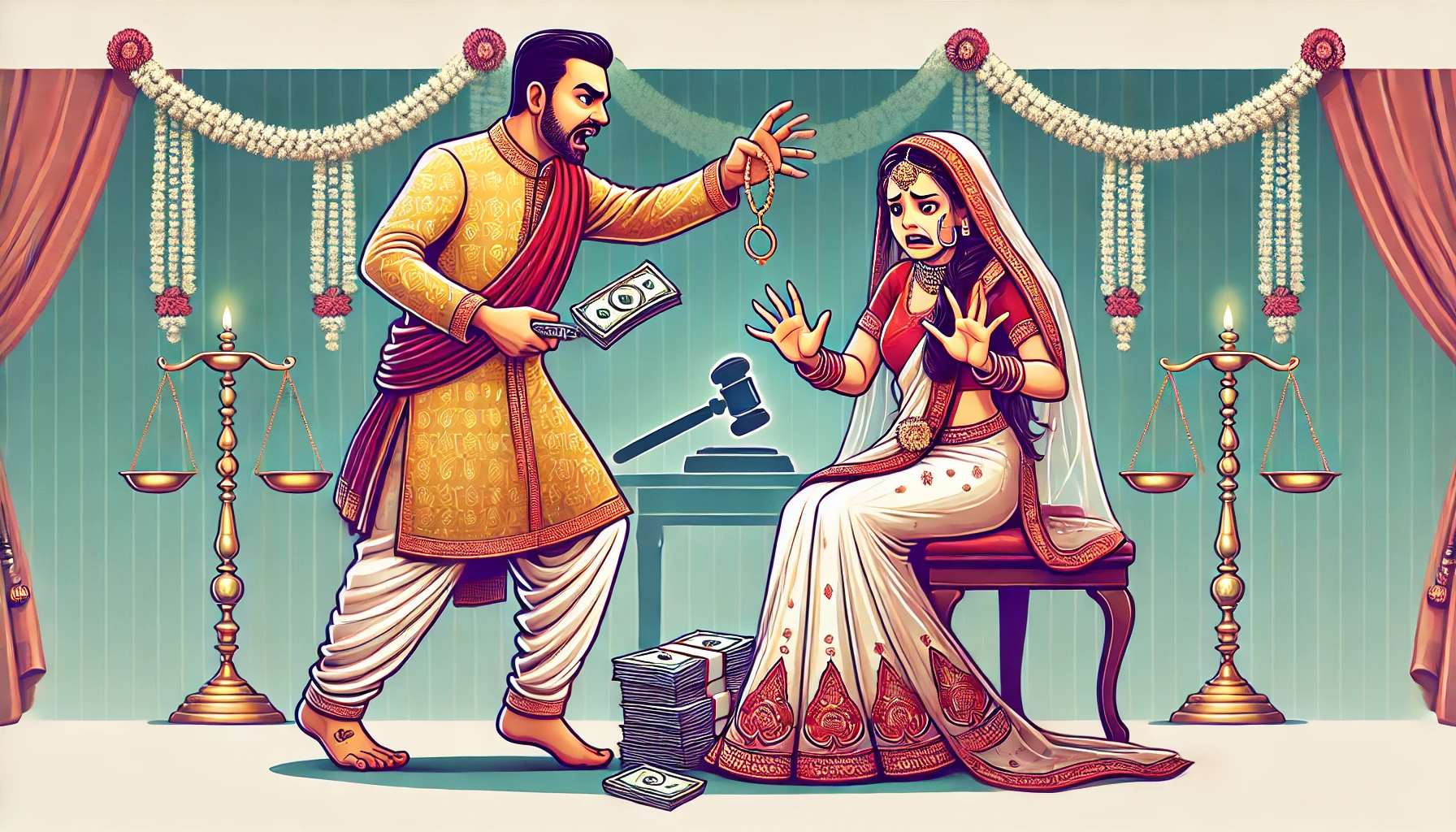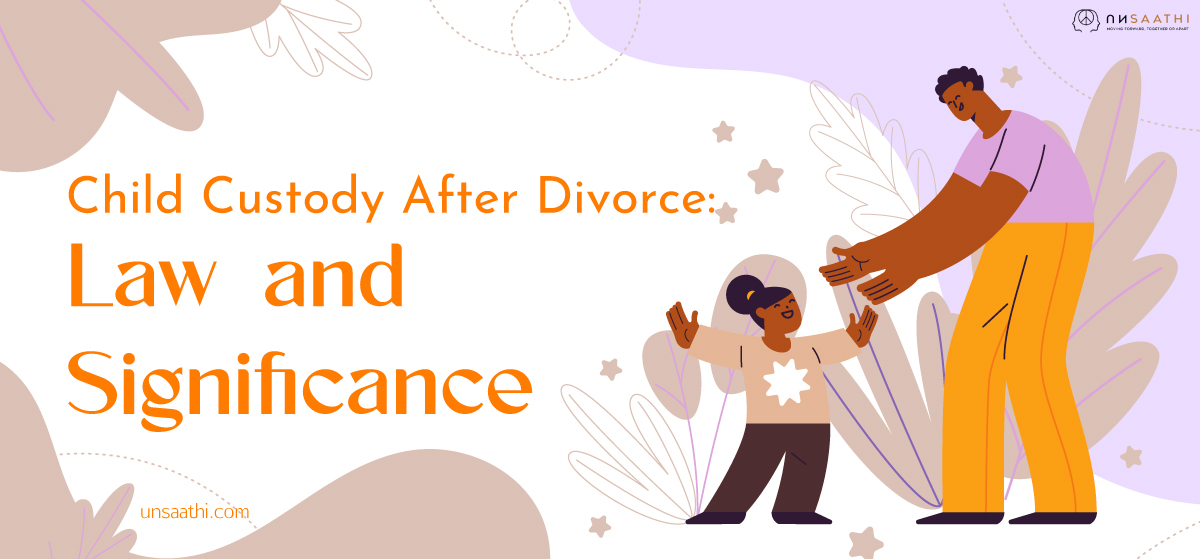Dowry, a cultural practice embedded in many societies, especially in South Asia, has been one of the significant reasons behind thousands of matrimonial disputes and divorce cases. It is alleged that such demand has resulted in harassment, domestic violence and fatalities despite most countries outlawing the practice of dowry.
Dowry is a criminal offence, as discussed in the Bharatiya Nyaya Sanhita. The severity of the offence depends on the demand and the amount sought.
In this blog, we will explore the impact of dowry on divorce cases and its legal consequences, discussing the relevant laws, judicial verdicts, and landmark cases that have contributed to the discussion surrounding this sensitive issue.

Dowry in India and its Laws Explained
During a marriage, dowry transfers money or commodities from the bride’s family to the groom’s. While it was initially conceived as a way to guarantee the financial well-being of the bride, dowry has transformed over the years into a societal scourge, resulting in extreme victimisation and oppression of women. The Indian wedding creates a financial strain for the bride and her parents.
The demand for an expensive dowry leads many women to suffer physical and mental abuse, as there is pressure to meet those demands, leading them to seek a divorce. Even then, many women do not divorce their partner due to societal pressure and lack of financial independence.
Every year, there are 6.4 thousand cases of dowry death reported; the original numbers are even higher. To combat this social evil, many laws were enacted. Some of those laws are mentioned below:
Dowry Prohibition Act, 1961 (India)
This law prohibits and makes illegal giving and receiving dowry and provides punishments for violations.
Protection of Women from Domestic Violence Act, 2005
The law provides for the protection of a woman against her being subjected to any form of harassment related to dowry.
Family Courts Act, 1984
The family courts act of 1984 provides for the establishment of such courts in India with the view to settle sensitive matrimonial dispute matters such as dowry. These courts have exclusive jurisdiction over such matters and provide a significant relief to victims. They primarily decree divorce, judicial separation and award grant of reasonable provisions for maintenance in the least hostile atmosphere.
Bhartiya Nyaya Sanhita
Section 80 of BNS deals with a husband or his relatives subjected to cruelty concerning dowry demands. If the husband or any relative of husband is found guilty of subjecting a woman to cruelty for the purpose of attracting dowry, can be punished up to the period of three years along with fine.
Further, death due to dowry is also addressed under Section 80 of BNS. The section punishes a minimum of seven years to life imprisonment upon the husband and in-laws, subject to a woman dying within 7 years of marriage and under suspicious circumstances due to dowry harassment.
Under Section 144 of BNSS, the court also orders that the sum paid as dowry be returned as maintenance monthly.
The victims of such cases harassment can also get protection orders, residence orders, and monetary relief through the courts. Furthermore, the courts can demand the return of items given as dowry to the woman or her family. The woman who was a victim of an act of dowry harassment may get higher alimony and also custody of the children.
Case Studies and Judicial Precedents – Landmark Dowry Cases in India
Shivcharan Lal Verma v. State of Madhya Pradesh, (2007)
In the case Shivcharan Lal Verma v. State of Madhya Pradesh (2007) where the husband and his in-laws were convicted under Section 304B IPC for the murder of the wife due to dowry demand.
State of Punjab v. Iqbal Singh (1991)
The case emphasised the onus of proof on the accused in dowry death cases.
Kamesh Panjiyar v. State of Bihar (2005)
The case accepted the presumption of guilt in case of dowry deaths within 7 years of marriage.
Sushil Kumar Sharma v. Union of India (2005)
The issue of abuse of Section 498A IPC came before the Hon’ble Supreme Court. After the case, the Hon’ble Apex Court expressed that false filing of dowry harassment cases undermines time for the real victims of dowry harassment.
False Dowry Cases
There are instances where unwarranted dowry harassment allegations are lodged to obtain an advantage in divorce settlements and fulfil the personal vendetta. The number of such false cases being reported has increased with time. Seeing this, the judicial system has taken action.
International Perspectives
There are provisions in countries like the United States, United Kingdom, and Canada to protect immigrant brides from being abused in pursuit of a dowry. Women who face such harassment in their marriages have legal recourse in these countries, which have laws that provide for protective orders and monetary relief.
Challenges in the Implementation of Dowry Laws
Although there are strong laws to protect women from dowry harassment, the implementation of anti-dowry measures is a daunting task due to the following:
- Low Awareness: Many women do not know their legal rights, especially in rural areas. Therefore, they do not raise their voices against harassment. It is essential for the government to raise awareness of this issue through various camps.
- Long Legal Proceedings: Lengthy court processes tend to lead victims to abandon their pursuit of justice.
- Financial Dependence: Usually, women are financially dependent on their spouses. This is one of the primary reasons why they endure harassment.
- Societal Pressure: Due to the ingrained patriarchy, society pressures women to stay in the situation.
- Corruption and Adverse Use of Laws: There are families that abuse dowry laws for individual benefit, resulting in false accusations.
Conclusion and Way Forward
In divorce cases, dowry has significant legal, criminal and civil ramifications regarding marital disputes. Although existing laws provide considerable protection, enforcement is the real issue. So, To fight against this menace, we need:
- Public Awareness Campaigns – It is crucial to raise awareness about the legal implications of dowry.
- Legal Measures – Introducing legal safeguards to prevent the misuse of the dowry laws will ensure justice for real victims.
- Support Systems for Victims – Establishing helplines, shelters, and financial assistance programs for dowry harassment survivors
It is crucial to note that the abolition of dowry will be possible only if the law, its implementers, and society join hands. Having a strong legal framework to support social change will help ensure that these marriages are free of financial coercion and that no one is subjected to abuse because of archaic customs.




